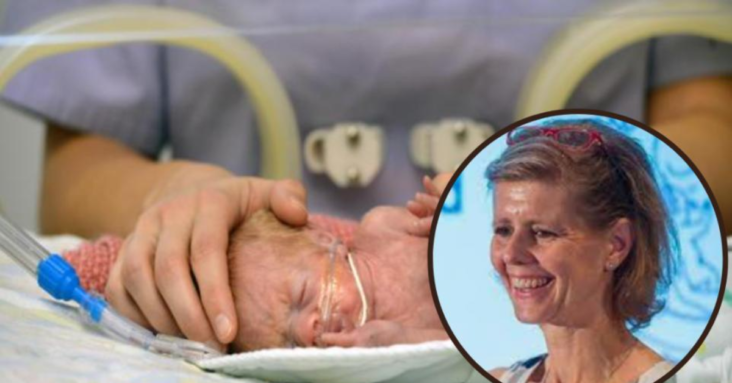
Healthcare Improvement Scotland (HIS) confirmed that it has appointed retired consultant neonatologist Dr Helen Mactier to chair the expert group which will investigate the possible causes behind two unexplained spikes in neonatal mortality just six months apart, in September 2021 and March 2022, when a total of 39 infants died.
Work is already underway but HIS said it is continuing to recruit some additional specialists to contribute to the expert panel, which is expected to meet monthly.
In October last year, HIS advertised for an experienced consultant working in a neonatal intensive care unit “outside of Scotland” to join the review group.
The Scottish Government commissioned the review in September last year after internal investigations by Public Health Scotland(PHS) found no definitive explanation for the increases in neonatal mortality.
Dr Helen Mactier, who recently retired after 20 years as a consultant neonatologist at the Princess Royal Maternity hospital in Glasgow, was the president of the British Association of Perinatal Medicine (BAPM) from 2019 to 2022.
She also served as a panel member on the independent investigation into East Kent Maternity Services, where repeated failings in care were blamed for dozens of deaths and injuries among mothers and babies.
A spokesman for HIS said: “At the request of Scottish Government, Healthcare Improvement Scotland is undertaking a review in relation to the significant increase in neonatal mortality across Scotland in the year 2021/22.
The alarm was first raised at the end of 2021, when monthly monitoring found that 21 babies had died within 28 days of birth during September, compared to the nine which would have been expected based on pre-pandemic averages.
This translated into a neonatal mortality rate of 4.9 deaths per 1,000 live births and – for the first time since monitoring began in 2017 – exceeded an upper warning threshold known as the control limit.
This triggered an automatic investigation but, just six months later, the control limit was breached for a second time when 18 newborns died in March 2022 – pushing the neonatal mortality rate to 4.6 deaths per 1000 live births.
No clear link has been found with Covid infections in either mothers or babies, or an increase in premature births – all of which increase the risk of neonatal mortality.
Chance variation is considered unlikely, but PHS suggested Covid-related staffing absences may have been a factor.
Any link to Covid vaccines has been ruled out on the basis of international evidence demonstrating their safety in pregnancy, but PHS confirmed that it had not checked the vaccination status of any of the mothers affected.
It stressed that there was no public health basis to do, and that such an analysis “whilst being uninformative for public health decision making, had the potential to be used to harm vaccine confidence”.
Since April 2022, the neonatal mortality rate has been falling and – between May 2022 and October 2022, the most recent month for which data is available – has been consistently lower than expected when compared against the pre-pandemic averages.



